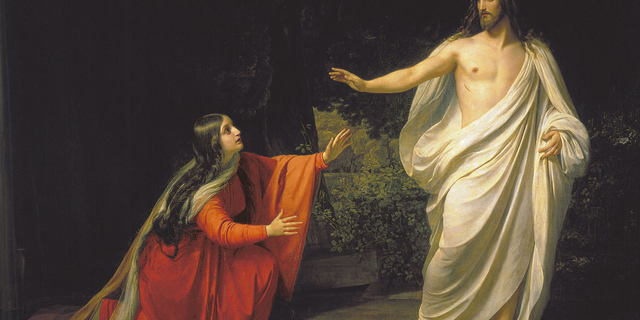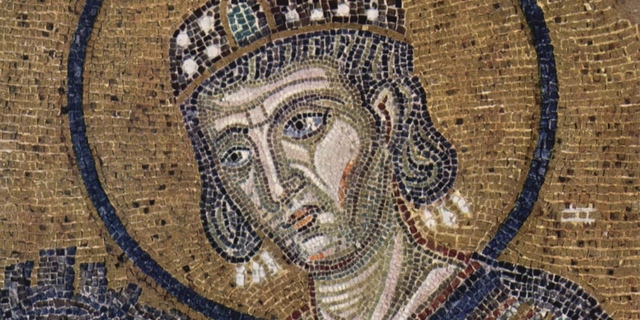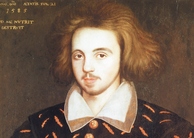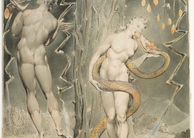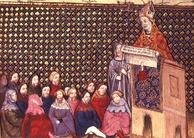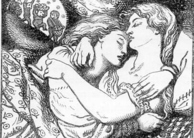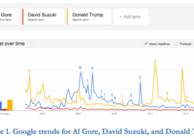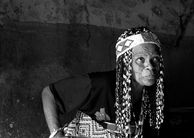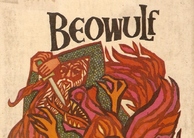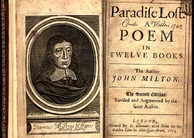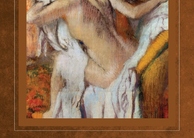|
Christ (tagged articles)
The keyword Christ is tagged in the following 32 articles.
2021, Vol. 13 No. 03
In recent years, questions of racial, religious, and sexual inequalities across classic literature have left many educators and students wondering if the canon of Western works are sufficient in portraying the many diverse peoples that existed during... Read Article »
2017, Vol. 11 No. 1
The relationship between the People's Republic of China (PRC) and the Holy See appears to be an uneasy association between opposites. With over 1 billion people, the PRC is "the world's most populous state," while the Holy See is housed in tiny... Read Article »
2017, Vol. 9 No. 05
Mary Magdalene remains prevalent within Christianity and popular culture. A mysterious and enigmatic figure, she continues to capture people’s imagination as ‘a mix of lust, loyalty, belief, prostitution, repentance, beauty, madness,... Read Article »
2017, Vol. 9 No. 04
In recent years there has been quite a bit of talk in philosophy of religion regarding how relevant and how purposive natural theology is, especially in comparison with experiential evidence. One major proponent of this recent skepticism in relation... Read Article »
2017, Vol. 9 No. 02
To briefly set the scene, the fourth century was a complex period for Christianity. It moved from being a persecuted sect to being supported by a new Christian Emperor, to vying with Constantine’s successors over unorthodox beliefs, to being... Read Article »
2016, Vol. 8 No. 09
The Victorian Age was a time of rapid economic, social, and cultural change throughout England. Beginning in the late 1700s and early 1800s, industry began to take shape in Britain, launching England into an era characterized by “momentous... Read Article »
2016, Vol. 8 No. 08
Two conflicting modes of living—happiness pursued obediently (Godly) versus happiness pursued disobediently (Satanic)—produce persistent problems with conceptions of free will in John Milton’s Paradise Lost. The Godly mode of happiness... Read Article »
2015, Vol. 7 No. 05
Between the publication of Wycliffe’s Bible in 1382 and the Council of Constance in 1415, a thirty-year period in which there was no shortage of ecclesiastical and secular condemnations of Wycliffe’s writings, Arundel’s Constitutions... Read Article »
2014, Vol. 6 No. 12
“I didn't get sent here to be elected Prom King.” Chris Christie peppered this signature mantra in many of his 2009 stump speeches, emphasizing that principle, not popularity, would help him lead New Jersey. These kinds of sweeping,... Read Article »
2014, Vol. 5 No. 2
This paper explores the relationship between Christian leaders and Twitter. Twitter’s founding resulted in an outburst in the use of the social media platform. Christian leaders quickly caught on, and today they use Twitter for a number of... Read Article »
2014, Vol. 6 No. 03
Among the questions that have attracted my attention during my theological career thus far, nothing has struck me more forcibly than the possibility of asceticism existing in the modern world. Modern asceticism initially appears an absurdity. A... Read Article »
2014, Vol. 6 No. 01
In "Goblin Market" (1862), Christina Rossetti (1830‑1894) presents a story of two sisters who must endure carnal lust in order to embrace a higher and purer realm of sexuality: marriage. This poem is a story of renunciation, but not one of... Read Article »
2013, Vol. 3 No. 1
In his 2011 book, Eco-Innovators: Sustainability in Atlantic Canada, environmental journalist Chris Benjamin provides a new kind of roadmap to a more sustainable future. In this work, Chris masterfully weaves the stories of 35 creative and dedicated... Read Article »
2013, Vol. 5 No. 07
George Herbert's (1593-1633) three-part work The Temple (1633) denotes the nature of his relationship with God. He conveys this unique relationship through the symbol of the Eucharist, which is both the celebration and memorialization of Christ'... Read Article »
2012, Vol. 4 No. 05
New York’s 1827 mayoral election was the harbinger for a new era in politics. Tammany Hall—New York’s democratic political machine—suborned thousands of immigrants to vote for the pro-Tammany ticket. With cartloads of Irish... Read Article »
2011, Vol. 3 No. 08
Development is closely linked to the idea of progress. Therefore the way in which progress is quantified, whether through economic, social or spiritual values, determines the way in which we conceptualize development (Power 2005). Religious beliefs... Read Article »
2011, Vol. 3 No. 08
The Abrahamic God is an awesome god. He is omnipotent, omniscient, omni-benevolent, and omnipresent. Such a being truly deserves our reverence. But could we choose to revere such an all-powerful, all-knowing, all-good, and all-present being such... Read Article »
2011, Vol. 3 No. 07
This proverb sadly encapsulates the reality of existence for the Zulu people in the last two centuries. Ripped from their positions of power and tossed into the pits of despair, life as they once knew it changed drastically. Nelson Mandela once... Read Article »
2011, Vol. 3 No. 07
Whether or not one believes in the theology attached to him, it is impossible to deny the effect that Jesus has had on humanity. Movements following him span the globe. Wars have been waged and love has been shared in his name. But who was the man... Read Article »
2011, Vol. 3 No. 05
Published in 1954, John Ronald Reuel Tolkien’s The Lord of the Rings is a follow-up to his 1937 book, The Hobbit. An epic fantasy novel originally published in three volumes (The Fellowship of the King, The Two Towers, The Return of the King... Read Article »
2011, Vol. 3 No. 05
The corpus of literature regarding Pauline Criticism is largely qualitative and polarized. Close examination of the Pauline-Corinthian conflict holds that in order to maintain legitimacy in the Corinthian Church, Paul miscontextualized Septuagintal... Read Article »
2011, Vol. 3 No. 02
Christianity has not gained a large number of adepts in China, if compared, for example, with Japan. But Christianity in China, in the late Imperial Era, had a number of particularities. Moreover, Christianity sometimes influenced Chinese women&... Read Article »
2011, Vol. 3 No. 01
The divide between human and non-human, real and not-real, is a problem frequently explored in texts about toys and undead creatures. Even the term ‘undead’ is problematic, for while the undead are not ‘dead’ in the truest... Read Article »
2010, Vol. 2 No. 12
Heroin chic emerged in the 1990s as a high class fashion trend which appropriated visual imagery of heroin junkies and their environment into fashion photography. Eventually condemned as an immoral glorification of drug use with the potential to... Read Article »
2010, Vol. 2 No. 11
When the Preacher wrote, “of making many books there is no end” [KJV Eccles. 12:12] he did not anticipate the mass of articles, scholarly papers and textbooks that would be written about Jesus’ address given to a group of disciples... Read Article »
2010, Vol. 2 No. 07
The introduction of Christianity to England in 597 established a structured, uniform faith among a people accustomed to different branches and pockets of polytheistic paganism. Over the next seventy-five years, the burgeoning country quickly grew... Read Article »
2010, Vol. 2 No. 05
The position of Jewish and Christian peoples under the Ottoman Empire is an issue that continues to be disputed today, almost a century after the official end of the Empire itself. Religious association typically determined status in the predominantly... Read Article »
2010, Vol. 2 No. 02
The story of mankind's fall from Eden as written by John Milton in his epic poem Paradise Lost portrays a classically heroic Satan and a modern hero in God's Son, Jesus Christ. While Satan fits the archetype of an epic hero, he is in fact showing... Read Article »
2010, Vol. 2 No. 02
Despite both being the leading female characters in their respective pieces, Christabel from Samuel Taylor Coleridge’s Christabel and Madeline from John Keats’ The Eve of St. Agnes have many striking similarities. Throughout both poems... Read Article »
2010, Vol. 2 No. 02
Carole Counihan argues that ‘men’s and women’s ability to produce, provide and consume food is a key measure of their power,’ (1998:2) whilst Jack Goody has argued, ‘gender hierarchies are maintained, in part, though... Read Article »
2009, Vol. 1 No. 12
The French historian Jean de Joinville was born into a noble and influential family in Champagne in 1224.[1] He took the cross in 1248 to join the first crusade of Louis IX. His decision to go on crusade was at least in part influenced by the long... Read Article »
2009, Vol. 1 No. 12
I will oppose fervently anyone who argues that the relative success of the Christian church owes anything to “uniqueness,” at least as far as theology goes. Christianity is not unique, not in its conception of God, not in its ideas about... Read Article »
Expedited Article Review
Submit an article and get a decision fast.
If you need a fast decision, INQUIRIES Journal offers expedited processing of your submission for a small fee. Depending on the expedited review option you choose, you can receive a decision in as few as 5-days.
In addition to a shorter review period, the fee supports the journal's continued operation and open-access publishing model. Standard submissions are always free. Submit Now » - Submit an Article to Inquiries Journal -
|



